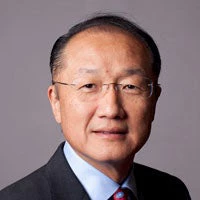
The Paris climate talks offer a once-in-a-generation opportunity to send the clear signal: We can build prosperity and support economic growth without carbon polluting the earth, and we must act with urgency because of a volatile, warming planet.
I believe political leaders from around the world will rise to this challenge in Paris. For us at the World Bank Group, we will help our client countries and companies make that transition to low-carbon and resilient economic development.
This transition will require the mobilization of trillions of dollars of investments in clean energy systems, urban transport solutions, landscape restoration and climate smart agriculture, which is described in the national plans, the Intended Nationally Determined Contributions. More than 170 countries have sent their plans to the United Nations.
We, together with many others, have produced the economic evidence that shows the longer we wait to start that transition to cleaner, low-carbon growth, the higher the cost. Countries run the risk of locking in high carbon energy choices, transport systems, and urban sprawl that will only make the future more difficult.
Countries must now send strong, consistent messages to all economic actors that they support cleaner technologies, processes, and services.
It means removing harmful costly fossil fuel subsidies. It also means getting prices right by taking a necessary step, to put a price on carbon pollution. Many countries and more than a thousand companies around the world support carbon pricing.
On the first day of the climate talks, I will be standing alongside a number of world leaders to call for more countries and companies to put a price on carbon. Some are members of the Carbon Pricing Panel, a group of heads of state and government leaders who have reached out to their peers and asked them to take this necessary leadership step.
The panel, convened by the Bank and the IMF, includes German Chancellor Angela Merkel, Chilean President Michelle Bachelet, French President François Hollande, Ethiopian Prime Minister Hailemariam Desalegn, Philippines President Benigno Aquino III, Mexican President Enrique Peña Nieto, Governor Jerry Brown of California and Mayor Eduardo Paes of Rio de Janeiro.
Governments also must use public policy to ensure that private investors and firms are investing in clean solutions for development. Efficiency standards for appliances, buildings, cars and trucks, tax codes that penalize carbon pollution and waste and encourage resource efficiency and innovation are needed on a consistent basis.
For many countries, this will mean access to concessional finance to de-risk investments in new business models or large projects perhaps with new technologies, to jumpstart adoption of business models and technologies and essentially to invest in resilience.
Much of what is in the national climate plans is conditional on financial support. We have committed to increasing our climate financing to potentially $29 billion a year by 2020 — that's almost a third of the $100 billion pledge that developed countries made the last time climate talks of this importance took place.
The national climate plans show trillions of dollars of opportunity, and that's where we need political leadership to put common sense and coherent policies in place to drive clean growth and resilience development.
The Paris talks must reflect the urgency of the task. Our mission at the World Bank Group is to end extreme poverty by 2030 and boost shared prosperity among the bottom 40% of populations. We are the first generation in human history that has the opportunity to end extreme poverty, but the impacts from climate change could make this impossible. In Paris, we must act with ambition because our future, and the future of our children and grandchildren, depend on it.
This post was originally published as part of a "What's Working: Low-Carbon Economy" series produced by The Huffington Post, in conjunction with the U.N.'s 21st Conference of the Parties (COP21) in Paris (Nov. 30-Dec. 11).


Join the Conversation